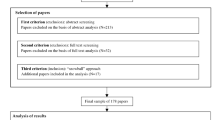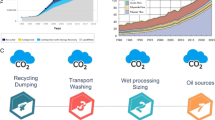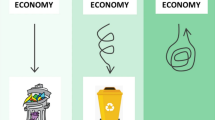Abstract
This study aims to analyze the impact of government subsidy policies on the development of remanufacturing enterprises and product quality in the context of carbon peaking and carbon neutrality, to promote the sustainable development of the remanufacturing industry. It establishes a comparative game model for two cases of remanufacturing enterprises respectively producing low-quality and high-quality remanufactured products. In the context of government subsidies for only high-quality remanufactured products, we investigate the effects of government subsidies on remanufactured products’ forms, prices, profits, and consumer preferences. The results show that government subsidies for high-quality remanufactured products help not only reduce the quality cost of remanufactured products and lower the wholesale and retail prices but also increase consumer preference for high-quality remanufactured products, enhance the market demand for remanufactured products, and promote scale expansion of the remanufacturing industry. This study provides decision support for governments to formulate subsidy coefficients for remanufacturing enterprises, offers theoretical and methodological support for the decarbonization and scale-up of remanufacturing and reduction of environmental pollution, and has significant practical value for achieving carbon peak and carbon neutralization goals.







Similar content being viewed by others
Availability of data and materials
All data generated or analyzed during this study are included in this published article (and its supplementary information files).
References
Abbey JD, Blackburn JD, Guide VDR (2015) Optimal pricing for new and remanufactured products. J Oper Manag 36(1):130–146. https://doi.org/10.1016/j.jom.2015.03.007
Agrawal VV, Atasu A, Van Ittersum K (2015) Remanufacturing, third-party competition, and consumers’ perceived value of new products. Manag Sci 61(1):60–72. https://doi.org/10.1287/mnsc.2014.2099
Agrawal VV, Ferguson M, Souza GC (2016) Trade-in rebates for price discrimination and product recovery. IEEE Trans Eng Manage 63(3):326–339. https://doi.org/10.1109/TEM.2016.2574244
Atasu A, Souza GC (2013) How does product recovery affect quality choice? Prod Oper Manag 22(4):991–1010. https://doi.org/10.1111/j.1937-5956.2011.01290.x
Atasu A, Van Wassenhove LN, Sarvary M (2009) Efficient Take-Back Legislation Prod Oper Manag 18(3):243–258. https://doi.org/10.1111/j.1937-5956.2009.01004.x
Binshi Xu (2014) Green remanufacturing project for ecological civilization construction. Resource Recycl 11:17–19
Cao Y, Yi C, Wan G et al (2022) An analysis on the role of blockchain-based platforms in agricultural supply chains. Transp Res E 163:102731. https://doi.org/10.1016/j.tre.2022.102731
Chang X, Li Y, Zhao Y, Liu W, Wu J (2017) Effects of carbon permits allocation methods on remanufacturing production decisions. J Cleaner Prod 152:281–294. https://doi.org/10.1016/j.jclepro.2017.02.175
Chen ZM, Chen ZX (2014) Coordination in a price-negotiable OEM supply chain with random supply and random demand. J Manag Sci China 17(5):43–51
Cui L, Wu KJ, Tseng ML (2017) Selecting a remanufacturing quality strategy based on consumer preferences. J Cleaner Prod 161:1308–1316. https://doi.org/10.1016/j.jclepro.2017.03.056
Demirel N, Özceylan E, Paksoy T, Gökçen H (2014) A genetic algorithm approach for optimising a closed-loop supply chain network with crisp and fuzzy objectives. Int J Prod Res 52(12):3637–3664. https://doi.org/10.1080/00207543.2013.879616
Ding M, Zhang Y (2021) All-crack remanufacturability evaluation for blade with surface crack. J Braz Soc Mech Sci Eng 43(9):1–13. https://doi.org/10.1007/s40430-021-03149-4
Han X, Yang Q, Shang J, Pu X (2017) Optimal strategies for trade-old-for-remanufactured programs: receptivity, durability, and subsidy. Int J Prod Econ 193:602–616. https://doi.org/10.1016/j.ijpe.2017.07.025
Hazen BT, Boone CA, Wang Y, Khor KS (2017) Perceived quality of remanufactured products: construct and measure development. J Cleaner Prod 142:716–726. https://doi.org/10.1016/j.jclepro.2016.05.099
Ho JW, Huang YS, Hsu CL (2018) Pricing under internal and external competition for remanufacturing firms with green consumers. J Cleaner Prod 202:150–159. https://doi.org/10.1016/j.jclepro.2018.08.109
Hong IH, Ke JS (2011) Determining advanced recycling fees and subsidies in “E-scrap” reverse supply chains. J Environ Manage 92(6):1495–1502. https://doi.org/10.1016/j.jenvman.2010.12.004
Ilgin MA, Gupta SM (2010) Environmentally conscious manufacturing and product recovery (ECMPRO): a review of the state of the art. J Environ Manage 91(3):563–591. https://doi.org/10.1016/j.jenvman.2009.09.037
Li Z, Zhang J, Meng Q, Zheng W, Du J (2019) Influence of government subsidy on remanufacturing decision under different market models. Math Probl Eng 2019:1–16. https://doi.org/10.1155/2019/9460315
Li B, Geng Y, Xia X, Qiao D, Wang H (2021) Comparatively analyzing the impact of government subsidy and carbon tax policy on authorized remanufacturing. Int J Environ Res Public Health 18(16):8293. https://doi.org/10.3390/ijerph18168293
Liang P, Fu Y, Ni S, Zheng B (2021) Modeling and optimization for noise-aversion and energy-awareness disassembly sequence planning problems in reverse supply chain. Environ Sci Pollut Res Int. https://doi.org/10.1007/s11356-021-14124-w
Ma ZJ, Zhou Q, Dai Y, Sheu JB (2017) Optimal pricing decisions under the coexistence of “trade old for new” and “trade old for remanufactured” programs. Transp Res Eng 106:337–352. https://doi.org/10.1016/j.tre.2017.08.012
Miao Z, Fu K, Xia Z, Wang Y (2017) Models for closed-loop supply chain with trade-ins. Omega 66:308–326. https://doi.org/10.1016/j.omega.2015.11.001
Mitra S, Webster S (2008) Competition in remanufacturing and the effects of government subsidies. Int J Prod Econ 111(2):287–298. https://doi.org/10.1016/j.ijpe.2007.02.042
Örsdemir A, Kemahlıoğlu-Ziya E, Parlaktürk AK (2014) Competitive quality choice and remanufacturing. Prod Oper Manag 23(1):48–64. https://doi.org/10.1111/poms.12040
Peng S, Ping J, Li T et al (2022) Environmental benefits of remanufacturing mechanical products: a harmonized meta-analysis of comparative life cycle assessment studies. J Environ Manage 306:114479. https://doi.org/10.1016/j.jenvman.2022.114479
Qiao H, Su Q (2021) Impact of government subsidy on the remanufacturing industry. Waste Manag 120:433–447. https://doi.org/10.1016/j.wasman.2020.10.005
Saxena LK, Jain PK, Sharma AK (2018) A fuzzy goal programme with carbon tax policy for Brownfield Tyre remanufacturing strategic supply chain planning. J Cleaner Prod 198:737–753. https://doi.org/10.1016/j.jclepro.2018.07.005
Soleimani H, Mohammadi M, Fadaki M, Mirzapour Al-e-Hashem SMJ (2021) Carbon-efficient closed-loop supply chain network: an integrated modeling approach under uncertainty. Environ Sci Pollut Res Inthttps://doi.org/10.1007/s11356-021-15100-0
Taleizadeh AA, Alizadeh-Basban N, Niaki STA (2019) A closed-loop supply chain considering carbon reduction, quality improvement effort, and return policy under two remanufacturing scenarios. J Cleaner Prod 232:1230–1250. https://doi.org/10.1016/j.jclepro.2019.05.372
Wang Y, Chang X, Chen Z, Zhong Y, Fan T (2014) Impact of subsidy policies on recycling and remanufacturing using system dynamics methodology: a case of auto parts in China. J Clean Prod 74:161–171. https://doi.org/10.1016/j.jclepro.2014.03.023
Webster S, Mitra S (2007) Competitive strategy in remanufacturing and the impact of take-back laws. J Oper Manag 25(6):1123–1140. https://doi.org/10.1016/j.jom.2007.01.014
Wu C (2013) OEM product design in a price competition with remanufactured product. Omega 41(2):287–298 (in Chinese)
Wu CH (2015) Strategic and operational decisions under sales competition and collection competition for end-of-use products in remanufacturing. Int J Prod Econ 169:11–20. https://doi.org/10.1016/j.ijpe.2015.07.020
Xi JP (2020) Speech at the general debate of the seventy-fifth United Nations General Assembly. Publishing CppccWeb. http://www.cppcc.gov.cn/zxww/2020/09/23/ARTI1600819264410115.shtml
Xia XQ, Zhu QH, Zhao SL (2017) Competition mechanism of manufacture/remanufacture considering government subsidies. J Manag Sci China 20(4):71–83
Xia X, Li C, Zhu Q (2020) Game analysis for the impact of carbon trading on low-carbon supply chain. J Clean Prod 276:123220. https://doi.org/10.1016/j.jclepro.2020.123220
Xia X, Li M, Li B, Wang H (2021) The impact of carbon trade on outsourcing remanufacturing. Int J Environ Res Public Health 18(20):10804. https://doi.org/10.3390/ijerph182010804
Xiao L, Wang X, Chin KS, Qin Y (2017) Competitive strategy in remanufacturing and the effects of government subsidy. J Syst Sci Syst Eng 26(4):417–432. https://doi.org/10.1007/s11518-017-5345-5
Xu B, Dan X, Junyang T, Shiyun D (2018) Status and development of intelligent remanufacturing in China. China Surf Eng 31:1–13
Yang L, Wang G, Ke C (2018) Remanufacturing and promotion in dual-channel supply chains under cap-and-trade regulation. J Clean Prod 204:939–957. https://doi.org/10.1016/j.jclepro.2018.08.297
Yi Z, Wang Y, Liu Y, Chen YJ (2018) The impact of consumer fairness seeking on distribution channel selection: direct selling vs agent selling. Prod Oper Manag 27(6):1148–1167. https://doi.org/10.1111/poms.12861
Zhang F, Zhang R (2018) Trade-in remanufacturing, customer purchasing behavior, and government policy. Manuf Serv Oper Manag 20(4):601–616. https://doi.org/10.1287/msom.2017.0696
Zhang Q, Wang L, Zhou D (2020) Remanufacturing under energy performance contracting—an alternative insight from sustainable production. Environ Sci Pollut Res Int 27(32):40811–40825. https://doi.org/10.1007/s11356-020-10116-4
Zhao J, Wang C, Xu L (2019) Decision for pricing, service, and recycling of closed-loop supply chains considering different remanufacturing roles and technology authorizations. Comput Ind Eng 132:59–73. https://doi.org/10.1016/j.cie.2019.04.019
Zhao S, Xu Y, Liu C, Wei F (2022) Impact of carbon tax and subsidy policies on original equipment manufacturers and remanufacturing companies from the perspective of carbon emissions. Int J Environ Res Public Health 19(10):6252. https://doi.org/10.3390/ijerph19106252
Zhu X, Wang Z, Wang Y, Li B (2017) Incentive policy options for product remanufacturing: subsidizing donations or resales? Int J Environ Res Public Health 14(12):1496. https://doi.org/10.3390/ijerph14121496
Zhu M, Li X, Ma J, Xu T, Zhu L (2022) Study on complex dynamics for the waste electrical and electronic equipment recycling activities oligarchs closed-loop supply chain. Environ Sci Pollut Res 29(3):4519–4539. https://doi.org/10.1007/s11356-021-15979-9
Funding
This research was supported by the National Social Science Foundation of China (No. 20BGL108).
Author information
Authors and Affiliations
Contributions
Conghu Liu conceptualized the study. Yi Xu and Conghu Liu were responsible for the study methodology. Data curation and analysis were performed by Yu Xi. Shuiying Zhao performed the investigations, and the resources were provided by Fangfang Wei. The first draft of the manuscript was written, reviewed, and edited by Yi Xu and Conghu Liu. All authors commented on previous versions of the manuscript. All authors read and approved the final manuscript.
Corresponding author
Ethics declarations
Ethics approval and consent to participate
Not applicable.
Consent for publication
Not applicable.
Competing interests
The authors declare no competing interests.
Additional information
Responsible Editor: Eyup Dogan
Publisher's note
Springer Nature remains neutral with regard to jurisdictional claims in published maps and institutional affiliations.
Rights and permissions
Springer Nature or its licensor (e.g. a society or other partner) holds exclusive rights to this article under a publishing agreement with the author(s) or other rightsholder(s); author self-archiving of the accepted manuscript version of this article is solely governed by the terms of such publishing agreement and applicable law.
About this article
Cite this article
Xu, Y., Liu, C., Zhao, S. et al. Subsidizing high-quality remanufactured products for sustainability. Environ Sci Pollut Res 30, 29029–29042 (2023). https://doi.org/10.1007/s11356-022-24183-2
Received:
Accepted:
Published:
Issue Date:
DOI: https://doi.org/10.1007/s11356-022-24183-2




